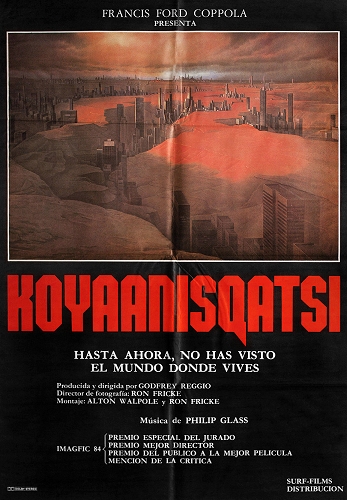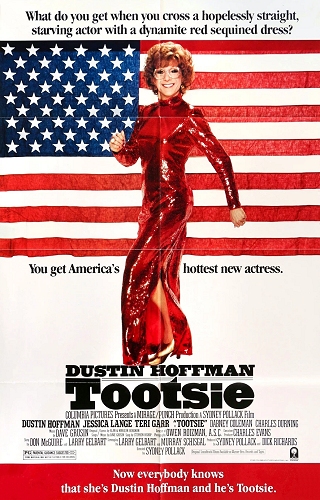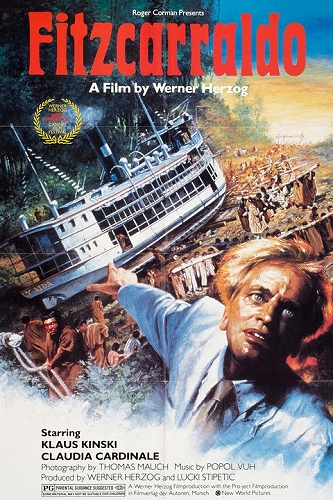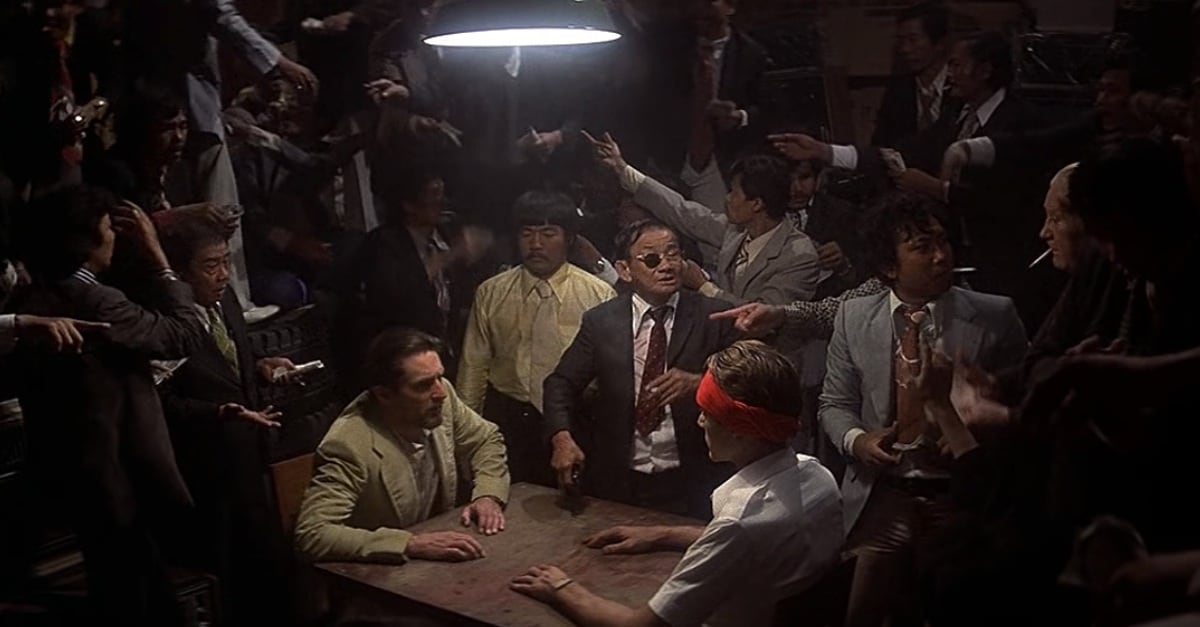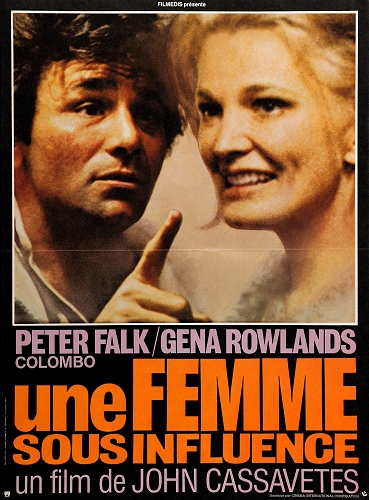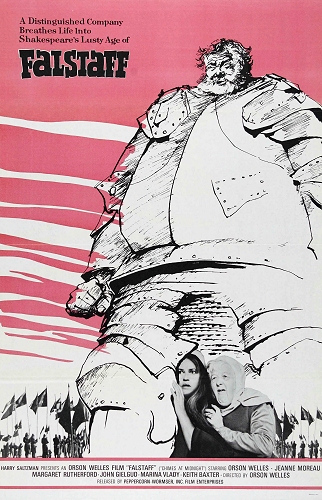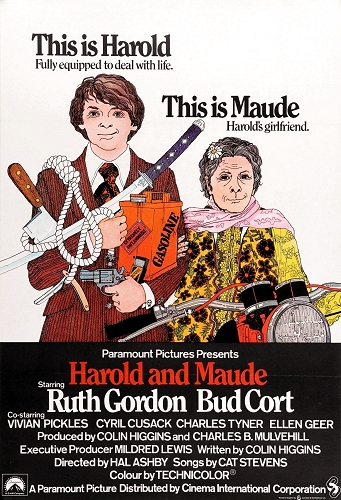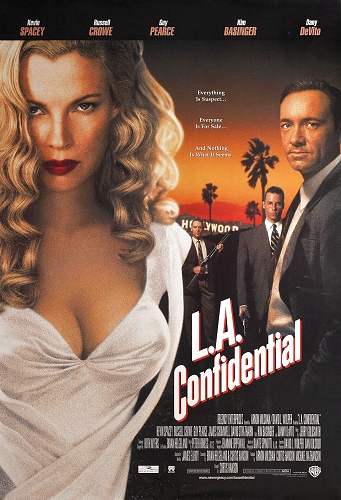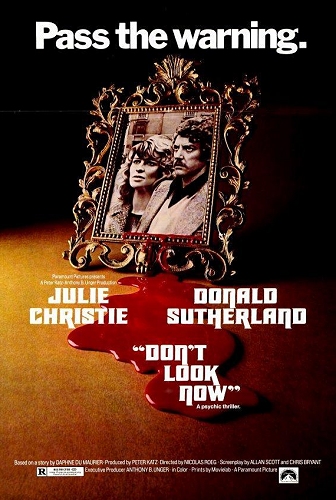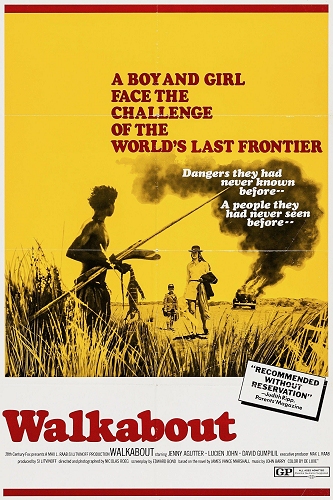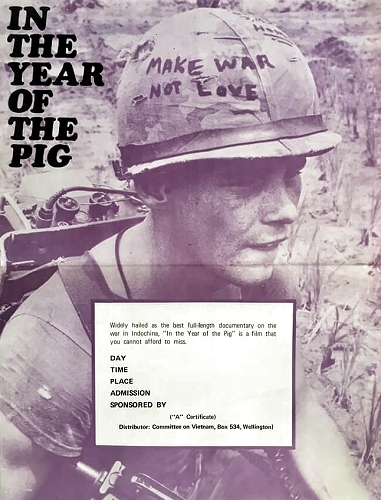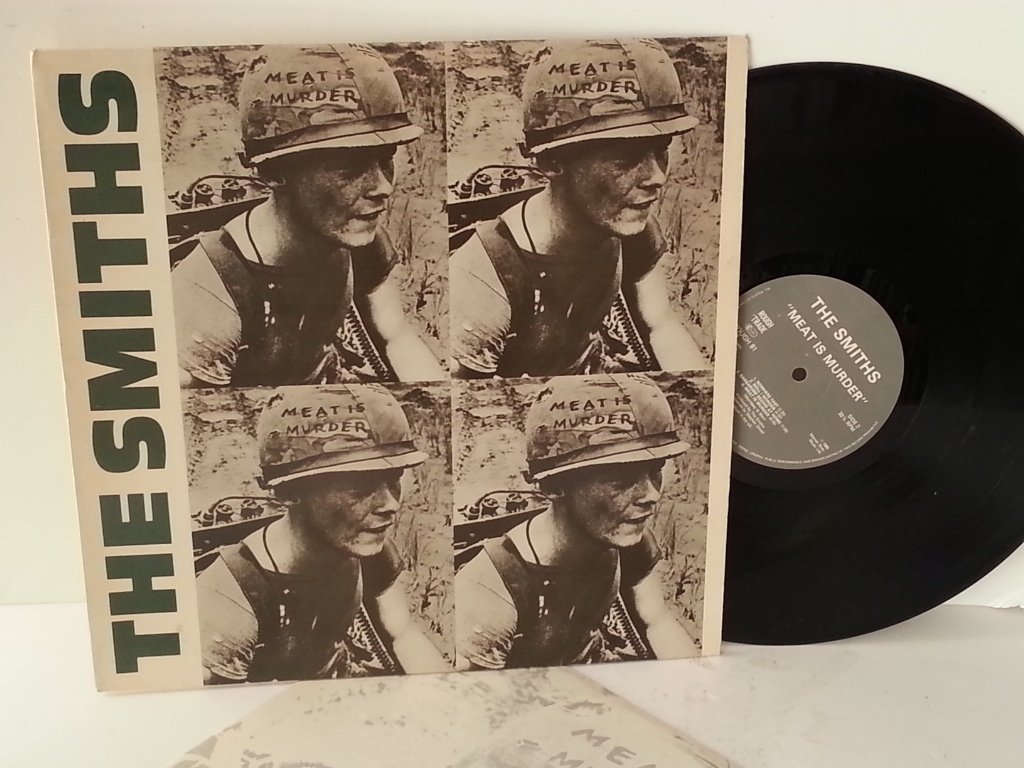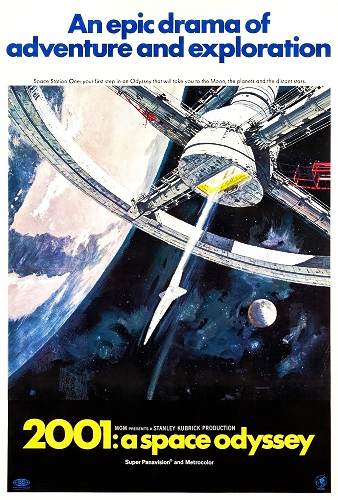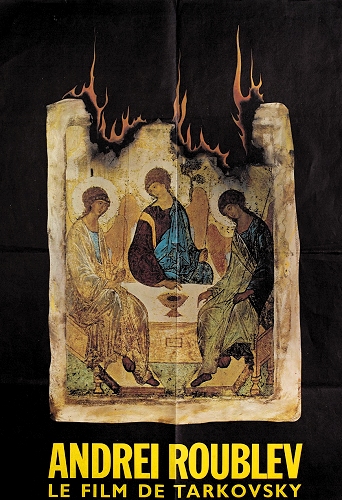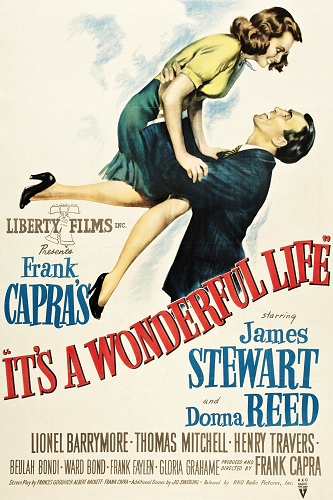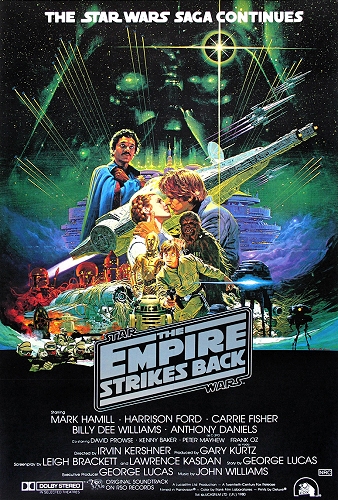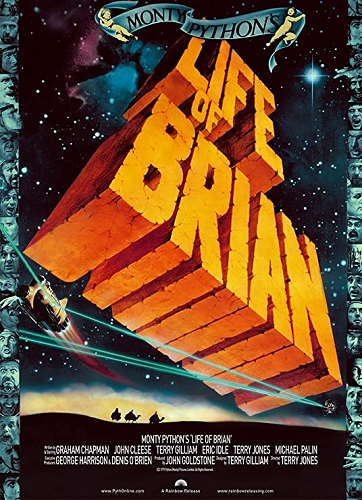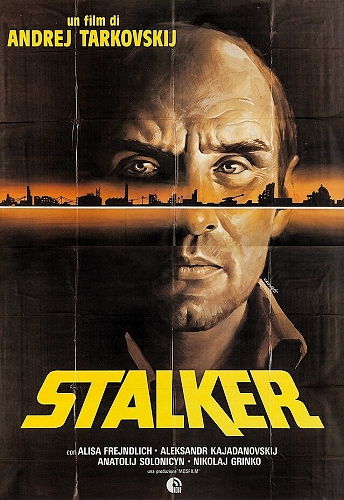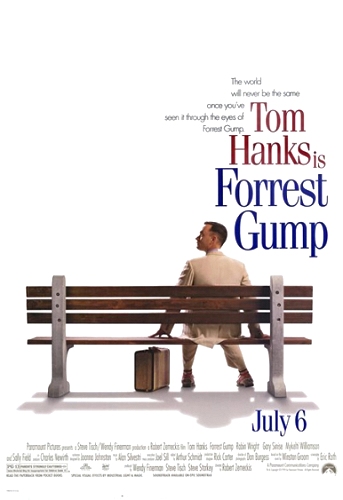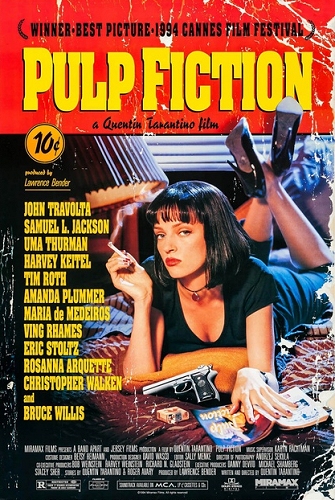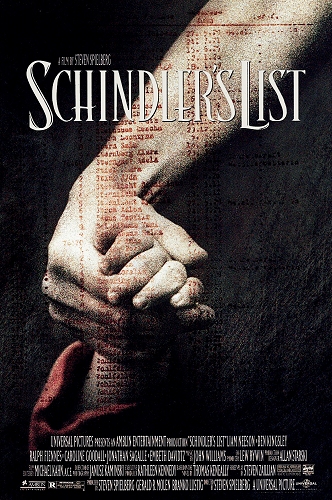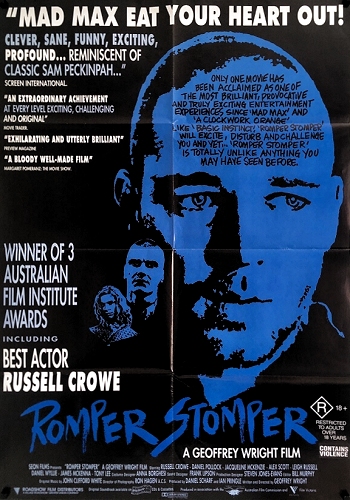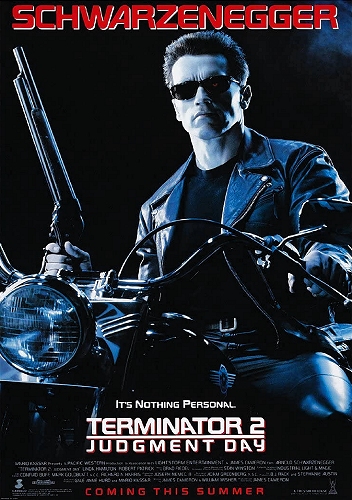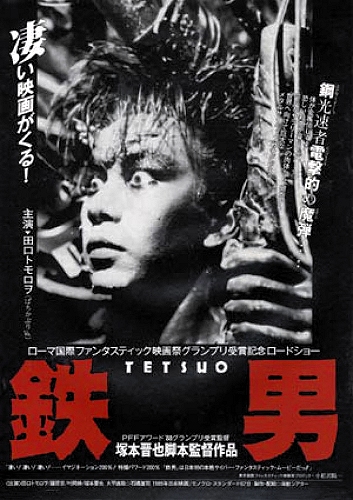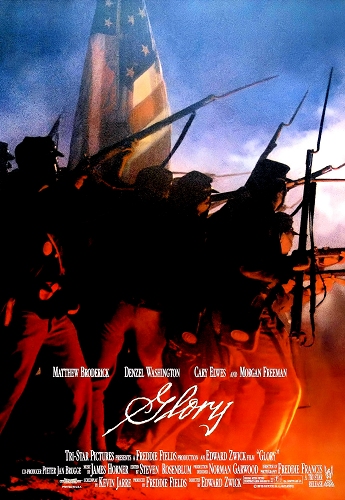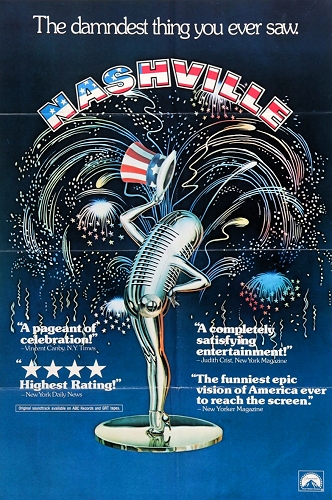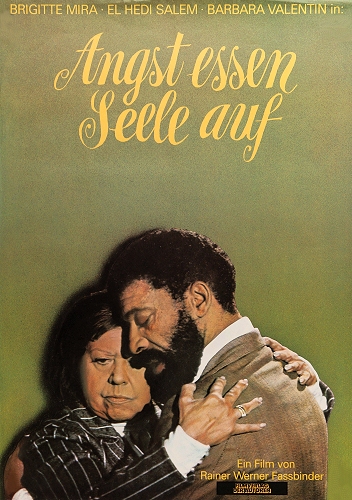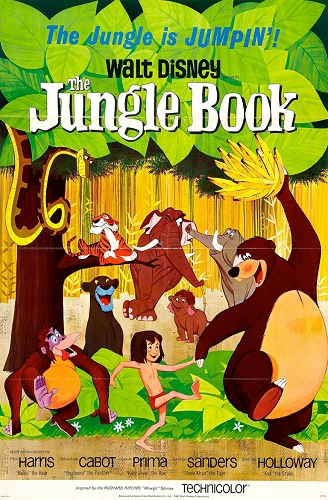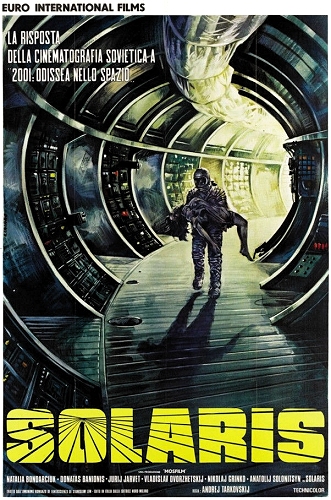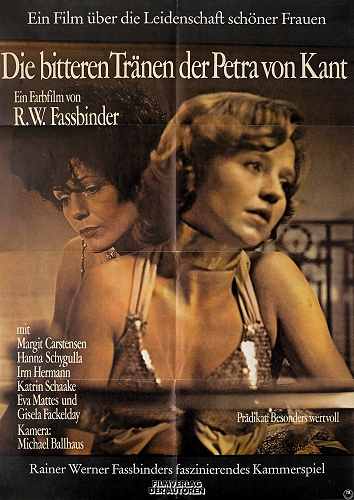The Empire Strikes Back (1980)
Director: Irvin Kershner
Country: United States / United Kingdom
Length: 124 minutes
Type: Sci-Fi, Fantasy, Adventure
I saw this was on Disney+ in 4K HDR, so I thought
"okay it's the special edition but maybe it'll look nice in 4K". Sadly no, it looks soft, low contrast, low in detail and the colours are awful, never mind the unnecessary editorial changes. I could only stand about 20-minutes, so I switched it off and went for the polar opposite, the "Grindhouse" 35mm fan scan. Ahhhhh that's better. Lots of detail, contrast and film grain, matte lines and I kinda love all the damage and colours being off from reel to reel. It also serves to make the joins in the FX invisible, like you're watching a documentary about
"a galaxy far, far away....".
'The Empire Strikes Back' is pretty much a perfect movie, so what else is there to say? This time I noticed that the opening Hoth sequence is kinda like a mini-movie replay of some of the moments from the first movie, to get us back in the swing, without an actual
"previously on Star Wars". Luke gets attacked by a Wampa instead of the Sandpeople, leading to him meeting Ben again who sets him off another adventure to find somebody. Luke takes down an AT-AT instead of the trench run, again with the help of Wedge. There's another desperate battle with the Empire, to buy time for the rebellion to survive. Han, Luke and Leia's bickering love-triangle is re-established and the Falcon makes a last minute escape from the clutches of Vader.
If I was trying to find fault... some of the plotting is lazy. You can tell they knew Luke had to go off alone and be trained in the middle of the movie, so what to do with all the other characters? Shall we give them their own important adventure plot? Nah, let's just say the Falcon has engine trouble so they can't go anywhere until we need them again at the end of the movie. That'll do. The thing is, that engine trouble section is so well written, acted, edited, scored etc that it's my favourite bit of the film. I could almost do without Luke and just spend the whole movie with Han, Leia, Threepio and Chewie arguing and getting in and out of scrapes. The asteroid sequence is one of the most exhilarating things put on film, much of the credit goes to
John Williams' score, perfectly in tune with the visuals. Ooh and that love theme. The up close Yoda puppet is magical but a couple of the long shots featuring other animatronic versions do look a little janky. I have to admit the cloud city interiors (which the SE made a half-hearted botched attempt to improve) do look underwhelming, once the gorgeous matte paintings have gone away and you're stuck in windowless white corridors. Would it really have been so hard and/or expensive to at least have had frosted glass windows with some vague impression of architecture outside, achieved through painted backdrops, or force perspective miniatures?
That's all nitpicking though, 'The Empire Strikes Back' is one of the best things ever. Sliced bread included.
<hr style="border: 1px solid white;" />
Monty Python's Life of Brian (1979)
Director: Terry Jones
Country: United Kingdom
Length: 94 minutes
Type: Comedy
I've seen it a hundred times before but this time I was really appreciating the tight pacing, clarity of the story and consistency of the writing. It somehow hadn't occurred to me before that the title song is a pastiche of
John Barry/
Shirley Bassey style Bond themes (
'Goldfinger' in particular). The humour isn't just constantly hilarious, some of the satirical observations are profound comments on human nature, like the bit where a crowd chant
"Yes! We are all individuals!", except one guy who pipes up with
"I'm not". The matte-paintings still hold up to HD scrutiny, the polystyrene statue and fake donkey less so. Another thing I could see up close was that
Terry Gilliam collaborator
Charles McKeown seems to be playing every other background character.
<hr style="border: 1px solid white;" />
Stalker (1979)
Director: Andrei Tarkovsky
Country: Russia
Length: 161 minutes
Type: Sci-Fi, Drama
In
"the distant future" (at least Wikipedia says that's where it's set because the film doesn't show or tell you that) two men seek to enter the mysterious
"Zone" with the help of
"The Stalker" (a sort of haunted, depressive Sherpa). It's either the site of an alien visitation, or a meteorite impact, it's not clear which, bottom line, it's a weird place and trespassing is forbidden. At the center there is supposedly a room where your deepest desire will be granted, an obvious enticement when the outside world looks like an apocalyptic wasteland. Like in
'The Wizard of Oz' the "real world" is all sepia but once our characters cross over the film switches to colour but it isn't exactly a Technicolor fantasy. Everything inside the "Zone" is overgrown, dank, muddy, decaying and bleak, pools of polluted water, rusting military hardware and hypodermic needles everywhere. They shot in abandoned chemical factories, toxic rivers, dusty industrial tunnels and crumbling power plants, which allegedly caused the early deaths of some of the cast and crew from lung cancer (including Director
Andrei Tarkovsky).
Like with other Tarkovsky films, some of the sequences really stick in the mind. The room of dust piles, the telekinesis scene, the thunderous waterfall inside a collapsed building and the massive light bulb flaring up and popping. Also the world has this amazing smoke/fog that hangs in the far background, like the limited draw distance on an old videogame. This being a Soviet film, it's impossible to not think that the "Zone" is a reference to the Chernobyl exclusion zone but of course
'Stalker' prophetically preceded that disaster by 7-years. 'Stalker' sucks you into the mystery at the start and ends powerfully and enigmatically but did we really need every minute of the 2-hours in the middle where the three characters wonder around talking to each other? The Artificial Eye blu-ray, while sharp and detailed, looks like it's from a decaying print rescued from the "Zone" itself, which kinda added to the experience.

